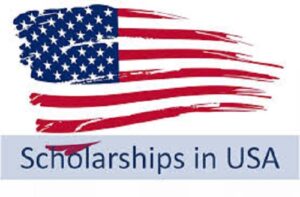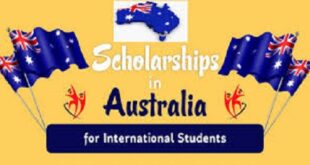Opportunities and Challenges: America Scholarships for International Students
Introduction: America, often dubbed the land of opportunity, extends its allure to international students through a plethora of scholarships. These scholarships not only provide financial assistance but also open doors to world-class education and cultural immersion. However, navigating the landscape of American scholarships can be daunting, with a multitude of options, eligibility criteria, and application processes. This detailed note aims to shed light on the diverse opportunities and challenges associated with scholarships for international students in America.
- Diversity of Scholarships: America boasts a rich tapestry of scholarship opportunities catering to various academic disciplines, levels of study, and demographic backgrounds. Merit-based scholarships are offered by universities, government agencies, foundations, and private organizations. These scholarships reward academic excellence, leadership potential, and extracurricular achievements. Additionally, need-based scholarships address the financial constraints of students from low-income backgrounds, ensuring inclusivity in higher education.

- Fulbright Program: One of the flagship scholarship programs for international students is the Fulbright Program. Administered by the U.S. Department of State, the Fulbright Program sponsors students, scholars, and professionals from around the world to study, teach, or conduct research in the United States. It fosters cross-cultural exchange and mutual understanding, emphasizing academic excellence and cultural immersion.
- Institution-Specific Scholarships: Many American universities offer scholarships specifically tailored for international students. These scholarships may cover tuition fees, accommodation, and living expenses. Institutions like Harvard, MIT, and Stanford have generous financial aid programs that ensure access to education irrespective of financial background. However, competition for these scholarships can be fierce, necessitating outstanding academic credentials and compelling personal statements.
- Government Scholarships: Several U.S. government agencies, such as the Department of Education and the Department of State, administer scholarships for international students. The Benjamin A. Gilman International Scholarship, for instance, supports undergraduate students with financial need to study or intern abroad. Similarly, the Humphrey Fellowship Program facilitates mid-career professionals’ academic enrichment and professional development in the United States.
- Private Foundations and Organizations: Numerous private foundations and organizations champion education and offer scholarships to international students. The Soros Foundation’s Open Society Foundations, for example, provide support to talented individuals with a commitment to social justice and human rights. Similarly, the Rotary Foundation offers scholarships for graduate-level study, promoting international understanding and peace through academic exchange.
- Challenges Faced by International Students: While the prospect of studying in America through scholarships is enticing, international students encounter various challenges throughout the application process and their academic journey. One major obstacle is the complex and competitive nature of scholarship applications, requiring meticulous documentation, standardized test scores, and compelling essays. Moreover, navigating the U.S. visa process and adjusting to a new cultural and academic environment can be daunting for many students.
- Financial Constraints: Despite the availability of scholarships, financial constraints remain a significant barrier for many international students. While scholarships may cover tuition expenses, students often face additional costs such as housing, healthcare, and transportation. Furthermore, fluctuations in exchange rates and visa restrictions can exacerbate financial challenges, particularly for students from developing countries.
- Cultural Adjustment and Academic Rigor: International students embarking on their academic journey in America must acclimate to a new cultural milieu and rigorous academic standards. Language barriers, cultural differences, and academic expectations can pose significant challenges, impacting students’ mental health and academic performance. Support services such as cultural orientation programs, academic advising, and counseling play a crucial role in facilitating students’ transition and success.
Conclusion: Scholarships for international students in America present unparalleled opportunities for academic and personal growth. From prestigious Fulbright scholarships to institution-specific financial aid programs, a myriad of options are available to aspiring scholars worldwide. However, navigating the complexities of scholarship applications and overcoming financial and cultural barriers require resilience, determination, and support. By addressing these challenges and harnessing the diverse opportunities, international students can fulfill their academic aspirations and contribute to global knowledge exchange and cross-cultural understanding.



